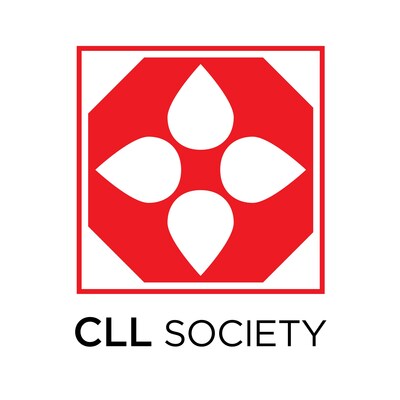SAN DIEGO, Feb. 1, 2023 /PRNewswire/ — CLL Society made significant progress last year in providing critical information and support for patients with chronic lymphocytic leukemia and small lymphocytic lymphoma (CLL/SLL), while advocating for all immunocompromised people and ensuring that lifesaving COVID-19 therapies are readily available for those who need them most. The nonprofit also launched a groundbreaking program to support underfunded research that aims to solve complications of CLL/SLL, advance care and treatment, and search for a cure.
“Thanks to our dedicated supporters, we were able to take monumental steps forward last year, improving the lives of those living with CLL/SLL today and providing a more hopeful future,” says Carly Boos, executive director of CLL Society. “This progress has positioned us for an even stronger 2023, and we’re off to a great start.”
Boos says CLL Society’s expanded efforts in research come at a critical time, as there have been many advancements in CLL/SLL treatments over the past decade but much work remains. There are an estimated 200,000 people in the U.S. living with CLL or SLL, which are slow-growing blood cancers, and there are about 20,000 newly diagnosed cases each year.
In January 2022, CLL Society launched its Young Investigator Award program. Each year, a $150,000 grant will be awarded to a junior faculty member and/or postdoctoral fellow who shows promise for becoming a future leader in solving the unmet needs of the disease. Dr. Christine Ryan, a senior hematology/oncology fellow specializing in CLL/SLL and lymphomas at Dana-Farber Cancer Institute in Boston, was the first recipient of the Young Investigator Award last January.
“We are proud to provide substantive support for bold scientists who represent a new generation of leaders in advancing care and treatment,” says Dr. Brian Koffman, a physician, CLL patient and cofounder, executive vice president and chief medical officer of CLL Society. “We’re grateful to our Research Review Committee for overseeing the rigorous selection process for the Young Investigator Award program.”
Koffman says CLL Society also has played a key role in advocating for the immunocompromised over the past year as the pandemic has evolved and much of society has moved on from wearing masks and other protections. Koffman and his team were successful in asking the NIH, CDC and FDA to broaden the definition of who is immunocompromised, to include more blood cancer patients and all those with CLL/SLL regardless of their treatment status. “We have advocated for cancer patients with Congress and various agencies, encouraging government health officials to consider the needs of those who are most vulnerable to COVID-19 when making decisions about testing and therapeutics,” he says, adding that CLL Society also led an effort that has evolved into the International COVID-19 Blood Cancer Coalition (ICBCC). “We know the pandemic is not over and our education and advocacy are critical.”
In addition, CLL Society has expanded its virtual support groups for people living with CLL/SLL or caring for someone who has it. There are now 41 support groups with more than 3,000 members, representing a 32 percent increase over 2021. The groups provide learning opportunities, patient-friendly and physician-reviewed information, and the opportunity to discuss anxieties and concerns. Also in 2022, CLL Society enhanced its outreach through the ask-the-expert program, webinars, Facebook Live educational events and topic-specific support groups. There was increased interest in these events, which attracted thousands of participants throughout the year. The organization launched an improved website last spring, making the site easier to find and adding more critical information for those who are newly diagnosed.
To ensure the CLL/SLL community continues to be armed with the latest information, CLL Society is preparing to host a webinar called “ASH 2022 Comes to You,” highlighting research presented at the ASH (American Society of Hematology) Annual Meeting, held in December in New Orleans. Koffman and other experts will explain the potential impact on future treatment options. Topics include the role of combination therapies, comparing existing BTK inhibitors, new options to treat double refractory disease and information about Richter’s Syndrome, a rare complication of CLL/SLL. The webinar will be held at 3 p.m. ET on Feb. 9, and free registration is available at https://cllsociety.org/ash-2022-comes-to-you/.
Boos says CLL Society has made great strides toward achieving the goals of its five-year plan, including expanding its reach and providing needed funding for research. “All of this is made possible by the abundant support we receive from donors big and small, as well as from our incredible team – the Board of Directors, Medical Advisory Board, Expert Medical Council, Patient Advisory Board, Industry Advisory Council, patient volunteers and our staff,” she says. “We’re grateful for everyone who advanced our mission in 2022, and we are well on the way to helping even more people in the CLL/SLL community in 2023 and beyond.”
About CLL Society
CLL Society is a leading authority for chronic lymphocytic leukemia patients, families, caregivers and medical professionals. Founded in 2013 by Dr. Brian Koffman, a physician, CLL patient and advocate, and Patricia Koffman, a caregiver and advocate, the nonprofit organization addresses the unmet needs of the chronic lymphocytic leukemia and small lymphocytic lymphoma (CLL/SLL) community through patient education, advocacy, support and research. CLL Society is a registered 501(c)(3) tax-exempt organization. To learn more, visit https://cllsociety.org/.
Media Contact:
Rachel Shaykin
Mekky Media Relations
847-331-5861
353008@email4pr.com
SOURCE CLL Society



